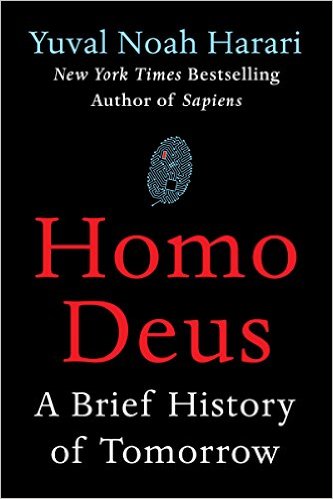This week on our Masters in Business radio podcast, we speak with Yuval Noah Harari, author of Sapiens: A Brief History of Humankind, and Homo Deus: A Brief History of Tomorrow. Sapiens was on the Summer reading list of both Barack Obama and Bill Gates, and was recommended by Mark Zuckerberg and Danny Kahneman.
We discuss how belief in stories allows humans to share common delusions. This leads to cooperation, and the development of civilization.
As an example, he describes the money as a collective fiction. The total value of money worldwide is $60 trillion dollars, but only $6 trillion of it is in cash and coins — that means 90% of all money are merely notes on a computer server. Harari says this makes money a “faith based object,” whose value is derived by the shared narrative about its worth. Even Gold is intrinsically worthless — you can’t eat it, or fashion tools or weapons out of it.
Harari explains how agriculture led to enslavement, infectious diseases, and inequality. The life of the average person got worse as the result of the agriculture revolution. It wasn’t until the industrial revolution that the average person’s quality of life began to improve.
He also references the advantages of “cognitive dissonance” was an important part of societal development.
All of the books Harari discussed can be found here.
You can hear the show on Bloomberg Radio, or stream/download the full show, including the podcast extras, on iTunes, SoundCloud and on Bloomberg. All of our earlier podcasts can be found on iTunes, Soundcloud, and Bloomberg.
Next week, we speak with Derek Thompson of The Atlantic, author of Hit Makers: The Science of Popularity in an Age of Distraction.
Thinking, Fast and Slow by Daniel Kahneman

Brave New World by Aldous Huxley

Guns, Germs, and Steel: The Fates of Human Societies by Jared Diamond

The Gay Revolution: The Story of the Struggle by Lillian Faderman

The Art of Living: Vipassana Meditation by William Hart

Sapiens: A Brief History of Humankind by Yuval Noah Harari

Homo Deus: A Brief History of Tomorrow by Yuval Noah Harari



What's been said:
Discussions found on the web: